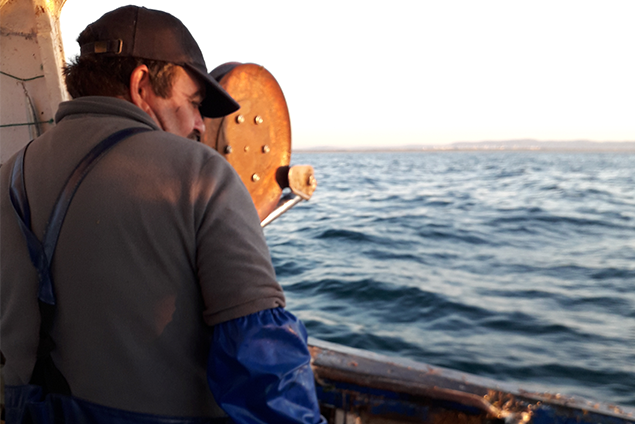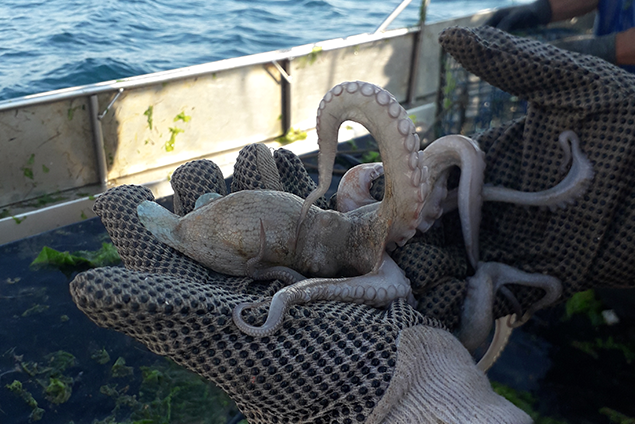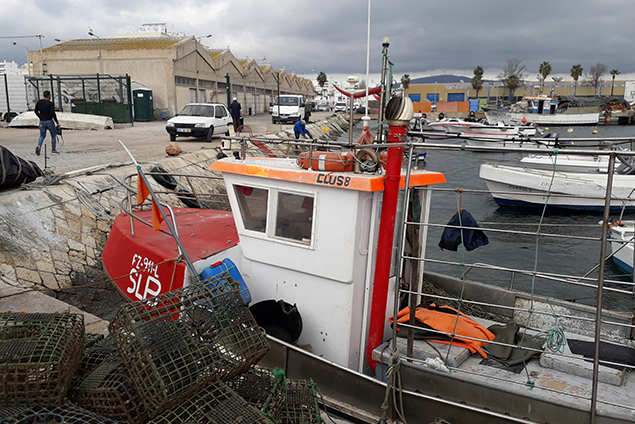


Fishery, Portugal
Location: Algarve – the southernmost region of continental Portugal where tourism is the driver of the economy and is strongly linked to fisheries through seafood and restaurants. The octopus fishery is the most valuable in Portugal, ranking first in sales with a value of € 48 million in 2018. The octopus fishery is of considerable socio-economic importance, with several hundred local and coastal vessels involved in the one in Algarve as well as 15 octopus fishing organizations representing hundreds of fishers. Certain coastal communities such as Santa Luzia and Fuzeta are heavily dependent on the octopus fishery directly through fishing or indirectly through restaurants where octopus dishes are a local speciality.
Fishery species: Octopus (Octopus vulgaris)
Current traceability challenges: The quantity of imported octopus is more than 3 times
that of the national landings. The high demand and high average 1st sale auction price (7.06 €/kg) leads to unsustainable fishing practices – overfishing and capture of undersized octopus, and to the marketing of imported octopus as nationally caught octopus. Traceability can protect consumers from fraudulent practices and promote labelling and sustainable fishing practices.
Traceability snapshot: Lack of complete start (fishery)- to-end (consumer) traceability. Octopus is supposed to be sold at auction, where official statistics are recorded, but it is known that a considerable proportion of the landings is sold directly to middlemen or restaurants. There is currently no way of knowing if octopus on the menu of any restaurant originated from Algarve or even Portugal. This also holds true for frozen octopus or octopus products (e.g., canned octopus) sold in supermarkets or in specialized gourmet food shops.
Potential via Sea2See :
– implement blockchain-based traceability from fishermen, to auctions, to buyers, octopus importers and consumers
– provide consumers with information on the source of the octopus, method of capture, and sustainability of the fishery – benefit the fishermen and regional tourism by adding value to the national, sustainably fished octopus reduce illegal sales, improve data quality for stock assessment and management of the octopus fishery.
